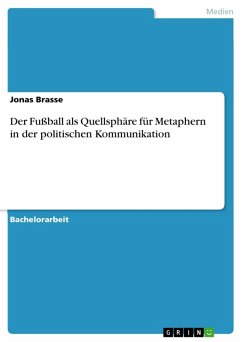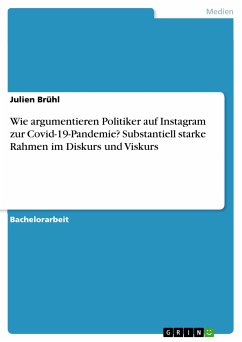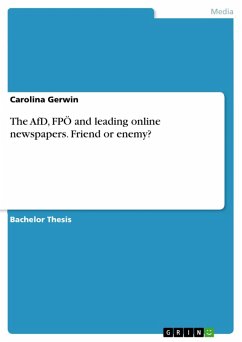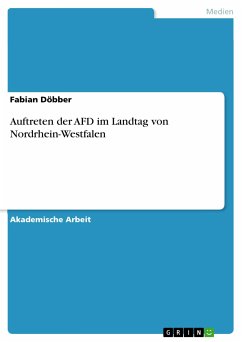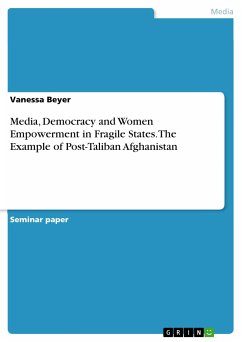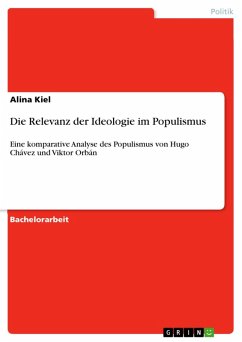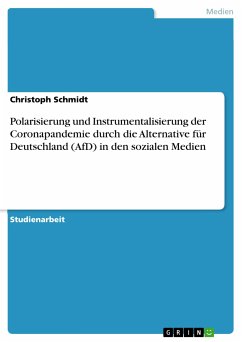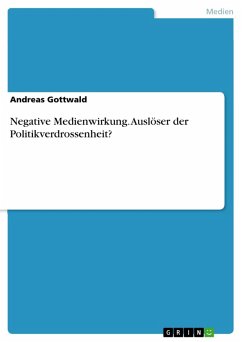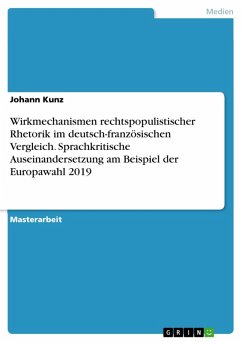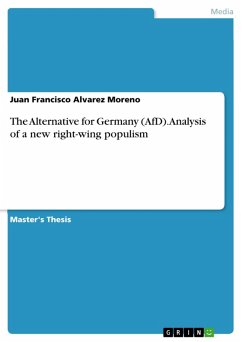
The Alternative for Germany (AfD). Analysis of a new right-wing populism (eBook, PDF)
Sofort per Download lieferbar
Statt: 42,95 €**
29,99 €
inkl. MwSt. und vom Verlag festgesetzt.
**Preis der gedruckten Ausgabe (Broschiertes Buch)
Alle Infos zum eBook verschenkenWeitere Ausgaben:

PAYBACK Punkte
0 °P sammeln!
Master's Thesis from the year 2017 in the subject Communications - Media and Politics, Politic Communications, grade: 1,7, Malmö University, language: English, abstract: The aim of this work is to examine how the political communication of the recently created German political party "Alternative for Germany" (Alternative für Deutschland) can be understood as a form of right-wing populist discourse. The analysis seeks to gain knowledge in how their discourses challenge the established ones in Germany. The discourses of the AfD are then examined in their wider context in a discussion about the...
Master's Thesis from the year 2017 in the subject Communications - Media and Politics, Politic Communications, grade: 1,7, Malmö University, language: English, abstract: The aim of this work is to examine how the political communication of the recently created German political party "Alternative for Germany" (Alternative für Deutschland) can be understood as a form of right-wing populist discourse. The analysis seeks to gain knowledge in how their discourses challenge the established ones in Germany. The discourses of the AfD are then examined in their wider context in a discussion about their social implications in Germany and Europe. The study design is devised following Norman Fairclough's approach to critical discourse analysis, which acts both as an analytical and methodological framework. Under a social constructionist paradigm, the corpus of selected political messages is analysed using a methodological toolbox that is based on Fairclough's work and looks after three levels of analysis: text, discursive practice and sociocultural practice. This framework is enhanced with the findings and theoretical considerations of Ruth Wodak's work on right-wing populist discourses. While the first two levels follow a constricted methodological guideline in order to examine how the AfD discourses can be understood as right wing-populism and how they challenge established discourses, the last level opens a discussion about how they draw upon and reproduce broader ideological-discursive formations and social practices.
Dieser Download kann aus rechtlichen Gründen nur mit Rechnungsadresse in A, B, BG, CY, CZ, D, DK, EW, E, FIN, F, GR, HR, H, IRL, I, LT, L, LR, M, NL, PL, P, R, S, SLO, SK ausgeliefert werden.




